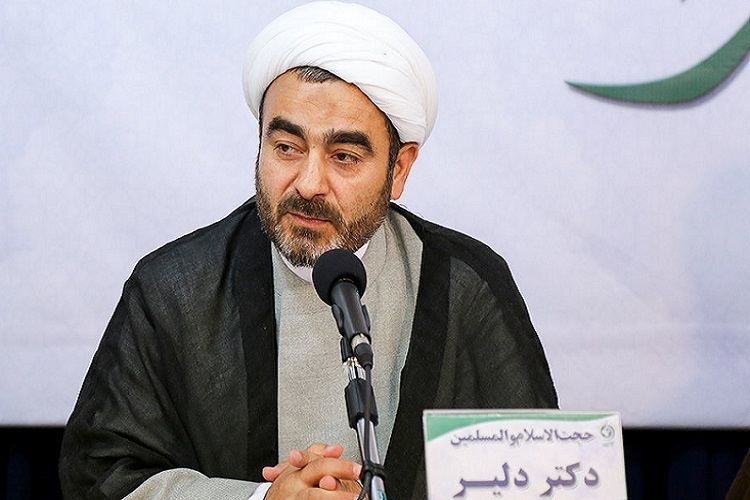Eid al-Adha a Call to Sacrifice the Ego and Serve the Needy: Scholar

“Sacrifice on the day of Eid al-Adha is symbolic,” Hojat-ol-Islam Bahram Dalir told IQNA. “It represents the severing of our attachment to wealth, possessions, and material desires. The true essence of Eid al-Adha is the sacrifice of the self — to place one’s ego and desires before God and say, ‘I accept what the Beloved accepts.’”
Eid al-Adha, also known as the Feast of Sacrifice, is one of the most significant holidays in the Islamic calendar. It commemorates the willingness of Prophet Ibrahim (Abraham) to sacrifice his son as an act of obedience to God, who ultimately provided a ram to be sacrificed instead. Muslims around the world mark the occasion with the ritual slaughter of livestock, distributing the meat among family, friends, and those in need.
Dalir, who is a faculty member at the Research Institute for Islamic Culture and Thought, highlighted the deeper spiritual implications of this act. “The most important message of Eid al-Adha is sacrificing one’s whims and ego-driven desires,” he said.
“In Islamic mysticism, the greatest obstacle on the path to closeness to God is the ego. As long as it remains, one cannot truly advance. If the ego is removed, the unseen becomes visible, and the unheard becomes audible.”
Read More:
He added that the lack of spiritual insight often stems from internal barriers: “If we do not experience divine vision or spiritual insight, it is because our egos stand in the way. As long as selfish desires exist, one cannot access the metaphysical realm.”
Beyond its spiritual meaning, Dalir emphasized the social responsibility embedded in the holiday. He urged Muslims to approach sacrifice in a thoughtful and systematic manner, ensuring the meat reaches those who need it most.
“If we truly understand the meaning of Eid al-Adha, no Muslim would go a year without tasting meat,” he said. “If the meat from sacrifices is properly distributed, it can serve an important social function — reducing inequality, at least in terms of basic nutrition.”
Read More:
He contrasted Eid al-Adha with Eid al-Fitr, noting that while the latter involves giving money (zakat al-fitr) to the poor, the former is about offering meat. “When wealthy individuals carry out sacrifices in a calculated and organized way, the social impact is tangible. It’s not a time for gatherings of the affluent who already socialize throughout the year. Eid al-Adha is not a social event for the wealthy — it’s a chance to reduce inequality and foster ethical and spiritual growth.”
Dalir concluded by stressing that true sacrifice requires detachment from personal gain. “Letting go of wealth fosters moral, spiritual, and emotional development in the one who gives. The act of sacrifice, when done with sincerity and awareness, benefits both the giver and the receiver.”
4286301



